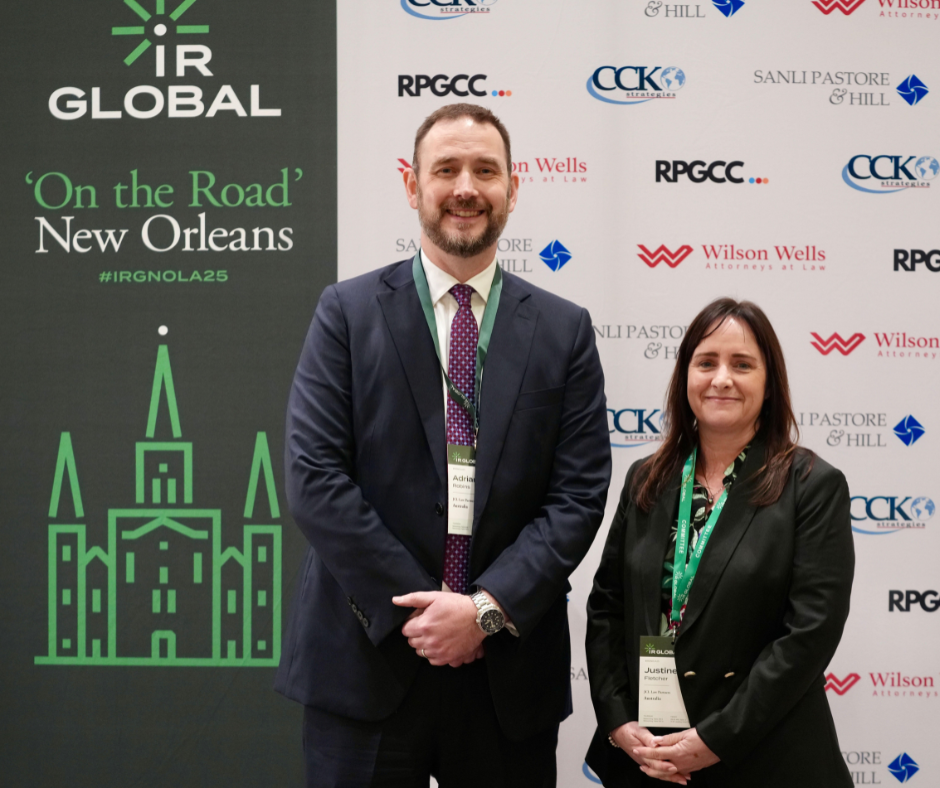AI Evidence Is Coming to Court: Authenticity, Manipulation, and Proof
Artificial intelligence is no longer just a business tool. It is increasingly part of the evidentiary landscape, and it is beginning to affect how disputes are run and how digital material is assessed in litigation. Emails drafted with AI assistance, AI-generated reports, deepfake-style audio or video, altered voice recordings and synthetic documents are now realistic possibilities in commercial disputes.
Australian courts are now confronting a practical question: can digital evidence still be trusted in the same way it once was?
For businesses, this is not an abstract concern. Many disputes turn on what was said in an email, what was agreed in a message thread, or what was captured in a recording. If those materials are challenged as manipulated or fabricated, the dispute can quickly shift away from the underlying commercial issue and into a technical contest about authenticity and proof. Understanding how courts approach authenticity is becoming critical.
The Rise of Synthetic Content
AI tools can now generate convincing text, images, audio and video in seconds. Many of these tools are used legitimately and responsibly in everyday business operations. However, the same technology can also be used to fabricate documents, mimic voices, alter recordings or create realistic but false digital material.
The issue is not simply that this can be done, but that it can be done cheaply and without specialist expertise. A fabricated email chain can be made to look genuine. A recording can be edited to alter meaning without obvious signs of tampering. A document can be subtly amended before it is produced in proceedings. These are no longer remote or hypothetical scenarios.
In commercial litigation, where digital documents often form the backbone of a claim or defence, this creates a new layer of risk.
Authenticity and Proof in Australian Courts
The rules of evidence have not fundamentally changed. Whether proceedings are governed by the Uniform Evidence Acts (including the Evidence Act 1995 (Cth) and equivalent State legislation) or Queensland’s Evidence Act 1977 (Qld), parties must still establish that the material they rely upon is what it purports to be and can be treated as reliable.
Historically, authenticity disputes have often been resolved through relatively straightforward evidence about authorship, storage and alteration. In many cases, the reliability of a document was assumed unless there was a clear basis to doubt it.
AI alters that landscape. Manipulation may not leave obvious traces. AI-generated content can appear coherent, professional and entirely plausible, even if it is false. This does not mean courts will accept AI-affected material without scrutiny. If anything, it increases the importance of demonstrating the provenance and integrity of digital records.
Metadata, audit trails, server logs and, in some cases, forensic expert evidence are likely to become increasingly significant.
The Burden of Proof Has Not Changed
Even as technology evolves, the legal principles remain steady. The party relying on a document or recording continues to bear the burden of proving authenticity and relevance. What is changing is the complexity of proving it.
A dispute that once focused squarely on commercial facts may instead become dominated by questions about document history, file creation, access permissions, version control and whether AI tools were used to generate or modify the material. That shift can add cost, delay and uncertainty to proceedings, even where the evidence ultimately proves genuine.
For businesses involved in high-value disputes, strong document governance and secure record-keeping are becoming strategic safeguards.
Deepfakes and Altered Recordings
One of the most concerning developments is the rise of deepfake audio and video. In commercial disputes, recordings of meetings, negotiations or phone calls can be decisive. If a party alleges that a recording has been altered or synthetically generated, the evidentiary dispute may become as significant as the underlying commercial claim.
Even where allegations are unfounded, the widespread availability of AI tools makes authenticity easier to challenge. This can delay proceedings, complicate settlement discussions and require additional expense for technical analysis or expert reports.
Courts are alert to these risks, and challenges to electronic recordings are likely to become more frequent as the technology evolves.
Courts Are Already Responding
Australian courts have begun addressing AI-related risks directly, particularly in relation to litigation documents and submissions. In September 2025, the Supreme Court of Queensland issued Practice Direction No. 5 of 2025, acknowledging the increasing use of artificial intelligence in litigation while warning that generative AI tools may produce apparently plausible but inaccurate or fictitious material. The Court emphasised that responsibility for accuracy and integrity remains with the party and their legal representatives.
The message is clear: AI may be used as a tool, but it does not dilute professional and evidentiary obligations.
What Businesses Should Be Doing Now
The most effective response to authenticity challenges is preparation. Businesses should not wait for litigation to consider whether their digital records would withstand close scrutiny.
Robust document management systems, secure storage practices and disciplined version control are increasingly important. Preserving metadata and maintaining clear audit trails can be critical if authenticity is questioned.
Internal awareness also matters. Staff should understand that AI tools can introduce risk, particularly in sensitive communications, contract drafting or internal reporting. Clear policies about when AI may be used and how that use is documented can significantly strengthen a business’s position if evidence is challenged.
These measures do not eliminate risk, but they enhance credibility - and credibility often shapes outcomes.
AI as Evidence in Its Own Right
In some disputes, AI systems themselves may become the subject of evidence. A claim may turn on how an algorithm reached a decision, whether it relied on flawed data, or whether an automated process operated as intended.
In those cases, transparency and documentation become critical. Businesses deploying AI tools in operational or decision-making contexts should be able to explain how those systems function, what data they rely upon and what safeguards are in place. Without that clarity, defending a claim may become considerably more difficult.
Early Legal Strategy Matters
Disputes involving digital evidence and allegations of manipulation are rarely straightforward. They often require early strategic decisions about preservation of records, forensic investigation and expert engagement. Acting too late can result in loss of metadata, incomplete audit trails or an inability to clearly explain how evidence was created and stored.
Early advice and timely evidence preservation can shape the direction and sometimes the outcome of a dispute.
A New Evidentiary Landscape
AI is not replacing the legal system, but it is reshaping how evidence is created, challenged and proved. As synthetic content becomes more sophisticated and accessible, authenticity is likely to become a more frequent battleground in commercial litigation.
Strong governance, secure systems and proactive planning are increasingly essential. Where the authenticity of digital evidence is questioned, preparation may determine whether a business can prove its case, defend its position or resolve the dispute efficiently.
If your organisation is navigating a dispute involving digital material, or is seeking to strengthen its internal safeguards before one arises, careful legal planning now may avoid far greater difficulty later.
As the evidentiary landscape continues to evolve, preparation matters. If you would like to strengthen your internal safeguards or seek advice on a current dispute, our team is here to assist. Contact us to start protecting your position with confidence.
JCL Law Partners to Sponsor IR Global’s ‘On the Road’ Conference Dinner in Singapore
Next month, James Conomos (Managing Director) and Justine Fletcher (Practice Manager) will be attending IR Global’s latest ‘On the Road’ Conference in Singapore. JCL Law Partners will have the pleasure of sponsoring the event’s luxury networking dinner at the idyllic Artemis Grill.
Jim will be connecting with professionals from a wide range of jurisdictions across the Asia-Pacific region, providing a valuable opportunity to engage with peers from around the world.
The program offers a strong mix of learning and networking, with presentations, breakout sessions, and social events hosted in premium venues throughout one of Asia’s most vibrant cities.
In today’s increasingly connected landscape, a strong international network is essential. By attending events like this, we continue to strengthen our global relationships and enhance the breadth of support we can offer our clients.
The growing importance of ADR and why more businesses are choosing it over litigation
Over the past decade, and especially in the years leading up to 2025, Australian businesses have increasingly turned to Alternative Dispute Resolution (ADR) to resolve commercial disagreements. What used to be seen as an optional pathway is now, in many cases, the preferred one. Rising court delays, increasing legal costs, and a stronger emphasis on preserving commercial relationships have all contributed to ADR’s growing prominence.
We regularly work with clients who are weighing up the best approach to resolving a dispute. While litigation will always have a place, there is no question that ADR is becoming the more practical, strategic, and commercially sensible option for many businesses.
Why ADR is becoming the default first step
Traditional litigation can be lengthy, costly, and adversarial. Even straightforward matters can take years to reach a final hearing, and most businesses cannot afford the disruption, uncertainty, or reputational implications that come with drawn-out proceedings.
By contrast, ADR (which includes mediation, negotiation, conciliation, and structured settlement discussions) allows parties to retain more control. The process is typically quicker, less formal, and far more flexible than the court system. Rather than waiting for a judge to hand down a binding decision, parties can shape their own outcomes and agree on solutions that make sense commercially.
Preserving relationships and reducing stress
One of the most significant benefits of ADR is its ability to preserve working relationships. Litigation is inherently adversarial; parties are positioned against each other, evidence is dissected, motives are questioned, and by the end of the process, any opportunity for continued cooperation is often gone.
ADR takes a different approach. The focus is on communication and problem-solving rather than fault-finding. This is particularly valuable in industries where businesses depend on long-term partnerships - construction, retail supply chains, franchising, professional services, and family-owned operations.
For many clients, ADR is also simply less stressful. Without the rigid procedural requirements of court processes, parties can engage more openly, explore creative options, and avoid the pressure and unpredictability that often accompany litigation.
Faster resolution in a congested system
Court backlogs across Australia have grown considerably in recent years, with some matters taking more than 18 months to be listed for hearing. For businesses facing operational or financial pressure, those delays can be damaging.
ADR offers an opportunity to resolve disputes far more quickly. Mediations can often be arranged within weeks. This accelerated timeline can be crucial for businesses that need certainty to move forward, whether that involves continuing operations, securing new contracts, or satisfying the expectations of investors or insurers.
Cost-effective and commercially sensible
Litigation costs can escalate rapidly. Legal fees, expert reports, discovery obligations, and court appearances all add up, often making the fight disproportionately expensive compared to the issue in dispute.
ADR is almost always more cost-effective. The shorter time frame, reduced formality, and streamlined process keep expenses in check. Even if a matter does not fully resolve at mediation, it often leads to partial agreements or narrow issues, reducing the time and cost of any subsequent litigation.
For many businesses, ADR is therefore a commercial decision.
Confidential and less damaging to reputation
Court proceedings are generally public. Judgments are accessible online, filings can be viewed by third parties, and disputes involving well-known businesses may attract media attention.
This level of transparency is not always desirable, especially where commercially sensitive information is involved.
ADR, on the other hand, is confidential. Discussions remain private, documents are not published, and parties have greater control over what becomes public. For clients concerned about brand protection or maintaining goodwill, confidentiality can be one of ADR’s most compelling advantages.
Where ADR works best
While ADR is useful across a wide range of industries, its benefits are particularly clear in disputes involving:
- commercial contracts
- partnership and shareholder disagreements
- property and leasing conflicts
- franchising issues
- supply-chain and trade disputes
- employment-related matters
- family-owned and closely-held business conflicts
In these situations, the ability to resolve issues quickly, discreetly, and collaboratively can make a significant difference to the ongoing success of the business.
How we support clients through ADR
At JCL Law Partners, we help clients prepare for and participate in ADR processes from start to finish. This includes analysing the commercial and legal issues, developing a negotiation strategy, preparing documentation, and representing clients in mediation or structured negotiations.
While ADR is designed to be less formal, it still requires careful preparation. Knowing the strengths and weaknesses of your position, understanding your best alternatives, and entering the discussion with clarity and structure can dramatically improve your chances of achieving a favourable outcome.
Importantly, we also help clients determine when ADR is appropriate - and when litigation may be unavoidable. Not every matter is suited to early resolution, and in some cases, court intervention is necessary to protect assets, enforce rights, or prevent ongoing harm.
The right time to seek help
Disputes rarely resolve themselves. The earlier a business seeks advice, the more options are available, whether through ADR, negotiated settlement, restructuring, or, if necessary, litigation.
ADR is not a sign of weakness. It is a practical, commercially focused tool that gives businesses greater control, reduces cost, limits risk, and promotes stability. As the business landscape becomes more complex and court delays continue to grow, ADR’s relevance will only increase.
At JCL Law Partners, we are committed to helping businesses across Queensland navigate disputes with confidence, clarity, and commercial insight. If your business is facing a conflict, now is the time to understand your options and to explore solutions that protect your long-term interests.
James Conomos Heads to Berlin for IR Global’s Annual Conference
This September, JCL Law Partners’ Managing Director, James Conomos, will swap Brisbane’s winter skies for Berlin’s late-summer energy as he attends another IR Global Annual Conference.
For Jim, these events do more than just tick the networking box. They’re about conversations that lead to real solutions, collaborations that cross borders, and perspectives that challenge the way we approach complex legal issues. With 400+ global professionals coming together, there’s no shortage of opportunities to share experiences and spark new ideas.
This year’s theme - Legacy in Motion - resonates strongly with our approach to practice. We believe a lawyer’s role isn’t just to resolve matters today, but to create strategies that will stand the test of time. Whether it’s advising on intricate cross-border disputes or helping clients navigate evolving regulatory frameworks, lasting value comes from combining local expertise with a global outlook.
Outside the conference sessions, Berlin’s history, architecture, and vibrant culture will set the stage for informal discussions and genuine connections - the kind of interactions that often lead to the best collaborations.
JCL Law Partners’ regular attendance to these conferences reflects our commitment to keeping our perspective fresh, informed, and globally connected. This means that our clients will continue to benefit from advice shaped not only by legal knowledge, but by the shared wisdom of a worldwide network.
If you’ll be in Berlin during the conference and would like to connect with Jim, we’d be delighted to hear from you - please get in touch at jim@jcl.com.au
Jim looks forward to seeing you there!
Understanding Australia’s Construction Industry Collapse Crisis
Over the past few years, Australia’s construction sector has been facing unprecedented pressure, and by mid-2025, the effects have become painfully clear. Dozens of major construction companies across Queensland and nationally have gone under, leaving behind unfinished projects, unpaid contractors, and thousands of affected workers.
At JCL Law Partners, we work closely with businesses facing financial distress, including those in the construction sector. While every collapse has its own circumstances, there are some consistent factors driving the crisis across the industry.
Tight margins and fixed-price contracts
One of the biggest challenges construction companies face is the widespread use of fixed-price contracts. These agreements lock in the cost of a project before it begins. While they offer certainty to clients, they leave builders with little room to absorb rising costs - something that has become all too common in recent years.
When the cost of materials or labour increases mid-project, builders still have to deliver under the original contract terms. For many, this means operating at a loss just to meet obligations. In some cases, one or two underpriced jobs can push a business into insolvency.
Escalating costs and supply chain disruption
Construction costs have soared since the pandemic, driven by global supply chain issues, shipping delays, and material shortages. Although supply chains have begun to stabilise, prices remain high, and companies that signed contracts in earlier years are still feeling the pinch.
Add to that labour shortages, which have driven up wages, and it’s easy to see why project budgets have blown out. Businesses are being squeezed from all directions, often with no way to pass on the increases to clients.
Delayed payments and cash flow pressures
In the construction industry, cash flow is everything. Businesses often front the cost of labour and materials and wait weeks (or months) to be paid. When payments are delayed, the pressure quickly mounts.
Subcontractors, in particular, bear the brunt. They may be waiting on payment from head contractors, who in turn are chasing funds from developers or owners. A delay at the top of the chain can leave dozens of smaller businesses struggling to pay their own workers and suppliers. The result? A domino effect that puts everyone at risk.
Project cancellations and market volatility
Interest rate rises and economic uncertainty have caused some developers to put projects on hold or scrap them altogether. Residential construction, especially in Queensland, has seen a slowdown in new approvals as affordability pressures bite.
For builders relying on a steady pipeline of work, any dip in demand can have a big impact. And once a project falls over or a key client withdraws, companies can find themselves overextended, with no work to fall back on and fixed overheads still ticking over.
Licensing and regulatory pressure
Queensland’s construction sector is heavily regulated, particularly through the Queensland Building and Construction Commission (QBCC). While the QBCC plays a vital role in protecting consumers and ensuring standards, it also enforces strict financial thresholds for licensed builders.
If a construction company can’t demonstrate sufficient working capital, it risks suspension or loss of licence, effectively shutting down operations. For businesses already on the edge, the threat of licence action can push them over the line.
Legal and financial complexity
When construction businesses collapse, the fallout can be messy. There may be multiple creditors, overlapping contracts, joint ventures, subcontractor claims, and employee entitlements to manage. This is not just a financial problem, it’s a legal one.
At JCL Law Partners, we’ve supported construction companies through restructuring, emergency asset sales, and other recovery strategies. We understand the unique challenges of the sector and how to navigate them. More importantly, we know that once financial trouble starts, early intervention is critical.
What can be done?
There’s no quick fix for the pressures the construction industry is facing. But there are steps businesses can take to protect themselves.
- Review contracts carefully. Where possible, include provisions that allow for cost variations or time extensions in the event of supply chain disruption.
- Prioritise cash flow management. Keep close tabs on payment cycles, and have a plan in place for when payments are delayed.
- Monitor financial health. Regularly assess whether you’re meeting licensing requirements and whether your capital structure supports your work in progress.
- Seek advice early. Whether you’re concerned about one project or the overall viability of your business, the sooner you act, the more options you have.
It's not too late to act
Construction businesses are among the most resilient operators in Queensland, but the past few years have tested that resilience like never before. If your company is facing mounting pressure, whether from a bad contract, a delayed payment, or a declining pipeline, it’s not a sign of failure to seek help.
Restructuring, emergency asset protection, and creditor negotiations aren’t just about crisis management. They’re tools that, used wisely, can stabilise your business and protect your future.
At JCL Law Partners, we work with struggling companies of all sizes to find practical, commercially sound ways forward. If you’re seeing early signs of financial stress, let’s talk before it’s too late.
Smart tech, safe hands
- How can businesses in your jurisdiction adopt AI and automation responsibly, and what guidance are you offering to ensure regulatory compliance?
In Australia, responsible adoption of AI starts with understanding that these technologies must operate within existing legal frameworks. While there isn’t yet a comprehensive AI-specific statute, businesses are still bound by key legislation such as the Privacy Act 1988 (Cth), the Australian Consumer Law, and anti-discrimination laws.
Any business introducing AI or automation should begin by identifying the specific functions the technology will perform and the type of data it will handle. There’s a clear need to ensure human oversight, particularly where decisions have legal, financial or reputational consequences for individuals.
Although voluntary, the Australian Government’s AI Ethics Principles offer a useful reference point. These cover areas such as fairness, transparency, privacy and accountability, and can be helpful in shaping internal governance.
There are also practical measures businesses can take. For example, being transparent with customers or clients about when AI is used in decision-making processes can help manage expectations and build trust. Clear documentation, staff training, and regular audits of AI systems further support responsible implementation.
In terms of compliance, the key is not simply ticking boxes but embedding thoughtful oversight into how AI is integrated into day-to-day operations. That may mean slower adoption, but it significantly reduces the likelihood of legal issues down the line.
2. What are the key risks of implementing AI, from data privacy to ethical concerns, and how can you help businesses in your jurisdiction navigate these complexities?
The risks associated with AI are varied and complex, particularly when it comes to data handling and ethical impacts. In many cases, AI systems require access to large datasets which often include personal or sensitive information. Misuse or poor management of that data can result in serious breaches of privacy law.
Bias is another major concern. If the data used to train an AI system reflects historical inequities, the system may replicate or even amplify those patterns. This can result in discriminatory outcomes in areas like hiring, credit assessments, or access to services. Even when the bias isn’t intentional, the legal consequences can be significant.
There are also broader ethical challenges. If an AI tool is being used to make high-stakes decisions (such as assessing job applications or determining eligibility for financial support), there needs to be transparency around how those decisions are made, and mechanisms for people to challenge them if needed.
From a legal standpoint, businesses should be conducting risk assessments before implementing AI, particularly in areas that directly affect individuals. Data protection impact assessments, internal policy reviews, and regular oversight of AI performance can help mitigate these risks.
Importantly, reliance on AI doesn’t remove legal responsibility. Businesses remain accountable for the outcomes their systems produce, and failing to monitor these systems adequately can leave them open to claims of negligence, discrimination, or breach of privacy.
3. Are you seeing any trends in AI-driven disputes or liability concerns? How can firms assist clients in addressing potential AI-related litigation or regulatory scrutiny?
While Australia hasn’t yet seen a flood of AI-related litigation, early signs suggest disputes are beginning to emerge, particularly where AI systems have made incorrect or unfair decisions. These disputes often raise difficult questions around liability, especially when the decision-making process lacks transparency.
One challenge is attribution. If an AI system denies someone access to credit or employment, and that denial was based on flawed data or a biased algorithm, who is responsible? The business deploying the technology? The vendor who developed it? At present, the law doesn’t provide definitive answers in every scenario, but what’s clear is that organisations deploying AI remain ultimately responsible for its use.
Another emerging issue is the use of AI in content generation and data scraping. There are ongoing debates about whether training AI on publicly available but copyrighted content constitutes an infringement. Until courts or legislators provide clearer guidance, this area remains uncertain and potentially risky for businesses relying on third-party AI models.
In this evolving legal landscape, businesses can take some practical steps. Reviewing and updating contracts - especially those involving AI tools or data processors - can help clarify responsibilities and manage risk. It’s also worth considering whether current insurance policies cover AI-related incidents, including reputational damage, data breaches, or system errors.
Overall, the trend is towards increased scrutiny. As regulators, courts and the public become more familiar with AI, expectations around transparency and accountability are likely to grow. Businesses using these technologies will need to stay alert to changing standards, and ensure they have the right processes in place to respond.
Key Takeaways
- Australian businesses introducing AI should align their practices with existing legislation such as the Privacy Act 1988 (Cth), consumer protection laws, and anti-discrimination provisions. Voluntary AI Ethics Principles offer a governance framework, but businesses must embed transparency, oversight, and audit practices into day-to-day operations to ensure responsible implementation.
- AI systems that rely on biased data risk producing discriminatory outcomes, even unintentionally. Transparency in automated decisions, particularly those affecting employment, finance or services, is critical. Legal obligations persist regardless of whether the decision-making was automated or human-led.
- Although case law is still emerging, liability concerns are increasing in areas such as unfair automated decisions, data scraping, and AI-generated content. Businesses must review contractual arrangements with technology providers, assess insurance coverage, and prepare for increased regulatory scrutiny.
This is James Conomos‘ submission to IR Global‘s latest edition of ‘The Visionaries’. Read the full publication here.
JCL Law Partners Director Adrian Robins and Practice Manager Justine Fletcher Visit New Orleans for IR Global ‘On the Road’ Conference
Last week, Adrian Robins (Director) and Justine Fletcher (Practice Manager) of JCL Law Partners attended IR Global’s ‘On the Road’ Conference in the vibrant city of New Orleans.
The event brought together professionals from a wide range of jurisdictions, offering a valuable opportunity to connect with like-minded individuals from across the globe, particularly those operating within the US.
Throughout the week, attendees participated in a packed agenda that included panel discussions, breakout sessions, and a variety of networking opportunities in some of New Orleans’ most iconic venues. From the opening drinks reception to the luxury networking dinner and cultural walking tour, the event combined professional growth with meaningful connection in a uniquely atmospheric setting. Justine also co-hosted a session on new AML Laws with the network’s practice management committee.
Maintaining a strong global network is essential, and attending these events allows us to continue expanding our international presence, strengthening our capabilities, and delivering enhanced value to our clients.
We are grateful to IR Global and the sponsors for hosting such a memorable and well-organised event, and we look forward to continuing our engagement with the network in the months and years to come.
Justine and Adrian also sat down with the IR Global team to discuss the firm's history and how we are leveraging digital marketing to expand our offerings to our clients:
Why Adrian Robins thinks learning never stops – even at the top (IR Global June 2025 Member Spotlight)
JCL Law Partners Director, Adrian Robins, featured as one of the IR Global network's June member spotlights. Read the full piece below:
Adrian Robins, a Director at Brisbane-based JCL Law Partners, has built a career defined by calm amidst conflict. He balances leadership, strategy, and deep legal expertise to support clients through high-stakes commercial litigation.
“I’m responsible for managing the practice, supervising staff, and overseeing the legal work alongside Jim (Conomos),” he says. “But at its core, my role is about resolving disputes and helping people find clarity in difficult circumstances.”
With over 17 years at the firm and 20 in legal practice, Adrian has seen the firm evolve – and personally, he’s held nearly every title going. “I started here as a solicitor, moved through associate, senior associate, salaried partner, and eventually director,” he explains.
The road from Sydney to Brisbane (and into litigation and insolvency)
Adrian’s career in law began in a niche area as a legal costs consultant. “That was just something I did after I’d finished university, in part because I didn’t know what I wanted to do,” he laughs.
The role gave him broad exposure to many areas of legal practice and insight into how firms operate behind the scenes. It also helped him quickly identify the practice areas he was most drawn to: commercial litigation and insolvency: “It was the sort of work that interested me the most and was most suited to my personality and skill set.”
Originally from Sydney, Adrian relocated to Brisbane through a short-term opportunity with a former firm. “It was meant to be just a bit of an adventure,” he says. “I very quickly found that Brisbane was a lot easier and a lot cheaper to live in than Sydney.”
What was supposed to be a one-year secondment turned into a long-term career and a life built in Queensland at what was then known as James Conomos Lawyers.
“Even when I was in my twenties, 17 years at a firm was exceptional. It wasn’t the norm. It just happened, I’ve enjoyed working here and with the people I’ve worked with.”
No two days alike
As a commercial litigator, Adrian is drawn to the variety and intellectual challenge of his work. “The beauty of commercial litigation is there’s no typical workday,” he says, “the litigation is the mechanics of what you do, but the subject matter varies markedly between matters.”
His role as a Director also includes supervising legal staff, managing client relationships, and overseeing strategic decisions at the firm. “There’s more responsibility for the day-to-day management of the practice,” he explains. “More of a strategic focus, I suppose.”
Despite holding a senior leadership role, Adrian continues to remain closely involved in legal matters. “I think everybody finds this, but when things get busy, you revert to type – you just knuckle down and get it done,” he explains.
In addition to court appearances, he frequently spends time advising clients, preparing for mediations, and managing complex disputes. “It could well be a whole day of conferring with clients and client meetings,” he says. “It could be a day in court or in mediation.”
However, court appearances are less frequent than many people assume: “You don’t spend as much time in court as people think. A lot of the work is preparing for court; putting your clients in the best position for when the time comes.”
Adrian’s day-to-day work also includes mentoring junior staff and ensuring the firm remains efficient and client-focused. “Not being the person doing as much of the grunt work, but trying to delegate and lead,” he adds. “It can be hard, though, particularly when the team is busy, because you often have to jump back in and do the work yourself, just to keep things moving.”
Finding purpose in people, not just the courtroom
Though he’s had his share of court victories, Adrian finds the greatest satisfaction in helping clients find peace during stressful times.
“As a litigator, one of the most satisfying things is when you have a matter that goes all the way through to trial… and you get a written judgment. It completely vindicates your client’s position.”
But often, it’s the more intangible moments that matter most. “Sometimes you can actually visibly see when you’ve put a client at ease. When they come in, they’re worried, they’re stressed…if you resolve a proceeding at mediation… sometimes you can even see the relief on your client’s opponent’s face.”
Overcoming imposter syndrome and industry pressure
Adrian is open about the challenges he’s faced, particularly early in his career. “I had a sense that I struggled to be taken seriously by more senior practitioners,” he shares.
“I suspect that was probably more a function of some kind of imposter syndrome.”
Back then, it wasn’t uncommon for senior lawyers to ignore junior correspondence and only respond to partners. “You don’t know whether that’s just because they were in a hurry… or whether it was a deliberate thing.”
Another ongoing challenge is work-life balance. “I’ve lost track of the amount of family dinners I’ve missed during the week or concert tickets I’ve had to forego,” he admits.
Stressing the importance of finding a good balance as early as possible, he warns “if you don’t pay attention to it, your health and fitness can really suffer.”
It’s OK to not know the answer immediately
To young professionals experiencing self-doubt, Adrian offers a reassuring perspective.
“One of the best pieces of advice anyone ever gave me early on was a senior practitioner who said: ‘I’ve been doing this for 25 years and I still don’t know the answer.’” That stuck with him; learning never stops.
“What you manage to work out as a junior associate is probably just as good as what anybody else might know,” he adds.
He also stresses the value of community. “Joining professional associations, particularly those aimed at young professionals. It’s a good place to know that you’re not alone.”
His parting advice: “You just have to roll with the punches and keep proving yourself.”
Connecting through IR Global
Although Adrian is relatively new to IR Global, he’s already seen the benefits firsthand. “Several years ago, through IR Global, I was able to very quickly source somebody in New Zealand who could do the work for our client. Without IR Global, it would’ve taken a long time.”
He’s now preparing to attend his first IR Global conference in New Orleans. “It’s a long trip, so I want to make the most of it.”
Looking ahead, he’s also eager to tap into the network’s expertise around compliance. “Australia’s new anti-money laundering legislation comes into force next year, and New Zealand members, who’ve already had similar laws in place, will be a great resource for us.”
Preparing for the future, and embracing the unexpected
For now, Adrian sees the firm continuing on its current path, but keeping a close eye on how technology will continue to reshape legal practice. “In the 20 years I’ve been in practice, technology has had a significant impact,” he says.
“The buzzword at the moment is obviously AI, which is going to change things in ways that we can’t even imagine.”
He’s also watching blockchain developments. “Things like smart contracts and tokenisation, that also potentially has the ability to change the way that law is practiced.”
Adrian stresses the importance of staying current. “It’s not going to make litigators obsolete, but it will change the way we work.”
Swimming lessons and dinosaurs
Outside the legal world, Adrian’s life has shifted into a new phase: fatherhood. “Despite being in my mid-forties, we’ve got a three-year-old toddler. That’s my life outside of work at the moment,” he laughs, “swimming lessons and dinosaurs.”
Adrian’s other hobbies have included photography and attending live sporting and music events. “Just before the COVID-19 pandemic hit, I took up digital photography as a hobby, but unfortunately that has taken a back seat lately.”
Still, he’s embracing this time fully: “You never get that time back, he’s only going to be young once. He won’t always want to hang out with me, so I’m making the most of it now!”
How proactive restructuring can save your business
Financial difficulties can creep up on a business when least expected. Whether it's due to market shifts, unexpected costs, or operational setbacks, many businesses find themselves at a crossroads: How do we turn this around before it's too late? The key is acting early and having the right plan in place.
At JCL Law Partners, we see restructuring as more than just damage control. It’s about making smart, strategic decisions that set a business up for long-term success. With years of experience helping businesses across Queensland and Australia, we’ve seen firsthand how the right approach can mean the difference between recovery and insolvency.
Timing matters
One of the biggest mistakes businesses make is waiting too long to seek help. Financial struggles don’t fix themselves, and delays can limit your options. The sooner you act, the more choices you’ll have to stabilise and move forward.
By working with an experienced restructuring team early on, businesses can explore a range of solutions, from debt negotiations to operational changes. The right strategy can put a company back on track before things spiral out of control.
Waiting too long can also damage relationships with creditors, suppliers, and customers. A proactive approach reassures stakeholders that steps are being taken to secure the business’s future. It can also help to maintain staff morale, as employees feel more secure when they see decisive action being taken.
Helping businesses to restructure
At JCL Law Partners, we provide a range of services to help businesses in financial distress, including:
- Private restructuring agreements - Custom solutions to reorganise debts while keeping control of operations.
- Emergency sales - When a quick sale is needed to preserve value, we help businesses navigate the process effectively.
- Deeds of company arrangement (DOCA) - A structured agreement that allows businesses to work with creditors on a manageable plan.
- Schemes of arrangement - A court-approved restructuring tool that can help negotiate better terms with creditors.
- Management of distressed companies and trusts - Practical guidance to help businesses stabilise and regain control.
- Tax issues - Addressing tax concerns that arise during restructuring to ensure compliance and avoid unnecessary liabilities with the aid of experienced tax advisers.
Seeking professional advice
Restructuring can be complex, and every business has unique challenges. Seeking professional legal and financial advice ensures that decisions are informed and legally sound. A well-executed restructuring plan helps protect valuable assets and reduce financial losses, allowing businesses to continue operating while avoiding insolvency. Effective debt restructuring improves cash flow management, giving companies the breathing room they need to rebuild.
Moreover, a clear recovery strategy enhances stakeholder confidence, reassuring creditors, suppliers, and employees that the business is taking the necessary steps to regain stability. Lastly, legal compliance is a critical factor - navigating restructuring with expert guidance minimises risk and ensures all actions align with regulatory obligations.
Engaging a restructuring expert not only helps navigate the technicalities but also provides a fresh perspective on how a business can adapt and thrive under new financial conditions.
Don’t wait until it’s too late
If your business is struggling, ignoring the problem won’t make it go away. Restructuring isn’t about failure, it’s about making smart choices that secure your future.
At JCL Law Partners, we don’t just provide legal advice; we offer practical, results-driven solutions to help businesses navigate tough times and come out stronger.
If you’re facing financial uncertainty, now is the time to act. A conversation today could make all the difference tomorrow. Contact us here to start taking control of your business’s future.
JCL Law Partners Welcomes Former ASIC Lawyer Adam Carr as Senior Associate
JCL Law Partners is pleased to announce the appointment of Adam Carr as a Senior Associate.
Adam brings close to a decade of experience in insolvency and litigation. Having worked at regulators for both personal and corporate insolvency, he offers a unique and intimate understanding of the industry from a regulatory perspective. His insights put him in a strong position to better advise clients on potential risks and issues with regulators.
His most recent role was at ASIC, where he was an executive-level lawyer responsible for the successful administration of the Assetless Administration Fund and worked within the enforcement and compliance group regulating registered liquidators. Adam has also worked in private practice with specialist litigation and insolvency law firms and the Australian Financial Security Authority (AFSA).
Adam’s deep regulatory experience provides a unique perspective on insolvency matters. He is among few lawyers in Australia who have worked in a team responsible for the regulation of liquidators, equipping him with an exceptional understanding of the industry. This first-hand experience allows him to provide strategic and informed advice to insolvency professionals, including liquidators and bankruptcy trustees. Additionally, he has worked across a broad range of insolvency and litigation matters in private practice.
Admitted as a solicitor of the Supreme Court of Victoria and the High Court of Australia, Adam currently holds an unrestricted practising certificate in Queensland. He takes a proactive approach with his clients and has a ‘get it done’ attitude when tackling complex legal issues.
Welcome to the team Adam - we look forward to the expertise and insight that you will bring to our clients.
Read the original article here.











